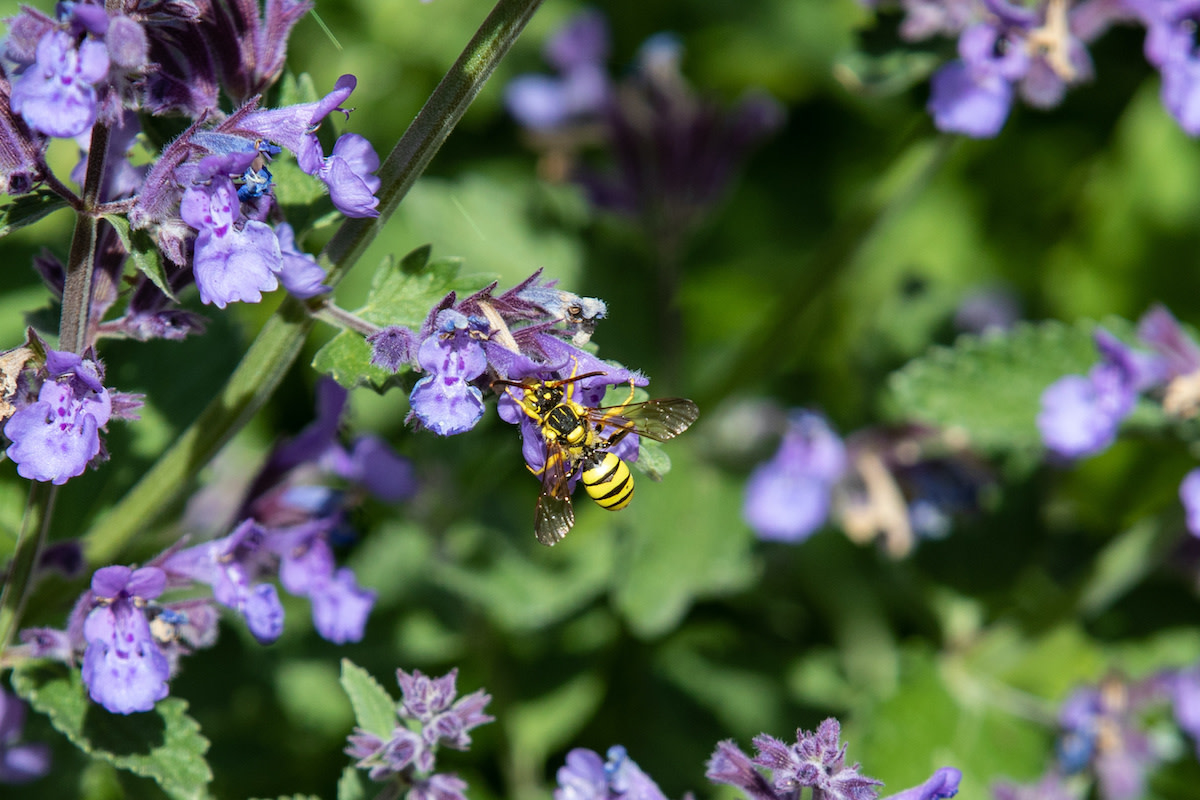How to Get Rid of a Yellowjacket Nest Near Your Home
Written by MasterClass
Last updated: Jul 14, 2021 • 3 min read
If you have a yellowjacket nest near your home, you want to remove it to eliminate the hazard of getting stung by these swarming wasps. Follow these helpful tips to safely get rid of a yellowjacket nest.
Learn From the Best
What Are Yellowjacket Nests?
Yellowjacket nests are home to yellowjackets, which are a type of yellow-colored wasp similar to a hornet. Unlike honey bees, yellowjackets have slim waists and their wings fold lengthwise against their body when at rest. These wasps are extremely aggressive when defending their nests.
If you try to move or destroy their nests, they will try to sting you most likely in a group. They may form their nests in tree trunks, soil cavities, in storm drains, or in walls. Yellow jacket stings will likely require medical attention if a person is allergic to bees, and avoiding these painful stingers is paramount. This is why you should make it a priority to safely remove their nests if they’ve built one near your home.
3 Methods for Removing a Yellowjacket Nest
There are a few methods you can follow to remove a yellowjacket nest from an area near your home. Here are three of the most popular methods for getting rid of a yellowjacket’s nest.
- 1. Aerosol wasp-killer: You can use an over-the-counter pyrethrum aerosol to create a gas cloud inside the nest that will kill the yellowjackets. Using an attachable nozzle on the end of the sprayer, spray the entire aerosol into the nest opening until the can runs dry. Do this at night, because the yellowjackets’ visibility is compromised making it harder for them to attack you. Additionally, all the yellowjackets will likely be in the nest, making it the ideal time to treat it. You can also use insecticide dust at the entrance holes of the nest to kill any escaping yellowjackets.
- 2. Yellowjacket bait stations: You can buy yellowjacket bait stations at your hardware store. Place some meat in the bait station along with some insecticide. This approach is best from spring to late summer. In the fall, use carbohydrates instead of meat to lure the yellowjackets.
- 3. Yellowjacket traps: Use traps when you're unsure of where the nest is located, such as with underground nests or ground nests in grass. Similar to bait stations, yellowjacket traps use bait like meat or fruit juice to lure the yellowjackets and then trap them inside.
5 Tips for Treating Yellowjacket Nests
Treating a yellowjacket nest is a sensitive process that requires planning and safety precautions. Here are some tips for clearing a yellowjacket nest from your garden or home.
- 1. Wear protective clothing. You should wear protective clothing (including long sleeves and long pants) and gloves to cover every inch of your skin when you’re removing a wasp nest. Also, wear a hat, goggles, and something to cover your neck. This is to cover any area of your skin that an errant yellowjacket may try to sting.
- 2. Clear your area of food sources. Yellowjackets will be lured by nearby food sources, including any food left out or in trash cans. Keep outdoor areas as clear of food or trash to help deter yellowjackets from building another nest nearby.
- 3. Treat the yellowjacket nest at night. You should only treat a yellowjacket’s nest at night. At night, visibility is limited for the wasps so it will be harder for them to sting you. Also, there is a greater likelihood that all the yellowjackets will be in the nest at night.
- 4. Place traps away from your home. If you're using traps or bait stations instead of aerosol, place them as far from your home or often-used outdoor spaces as possible. You want to lure the yellowjackets away from any spaces you frequent.
- 5. Avoid treating yellowjacket nests if you’re allergic. If you are allergic to bees, ask someone else to treat the yellowjacket nest. You can also employ the help of a pest control service. You should avoid being close to the nest at all costs.
Learn More
Grow your own garden with Ron Finley, the self-described "Gangster Gardener." Get the MasterClass Annual Membership and learn how to cultivate fresh herbs and vegetables, keep your house plants alive, and use compost to make your community—and the world—a better place.
